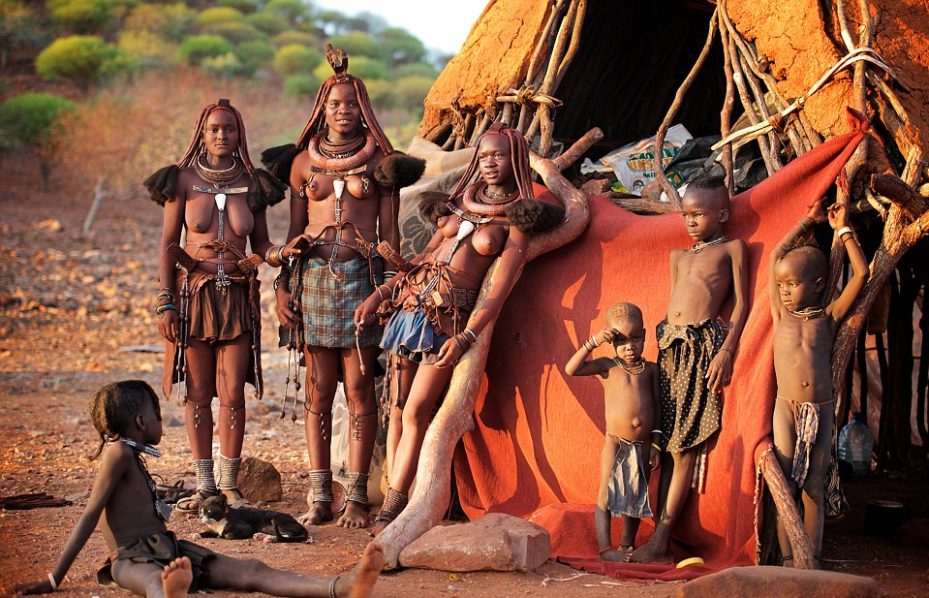Africa has a set of cultures that are an absolute turn off, a good of Weirdest Guest Culture in Namibia’s Hima Tribe being where guests are welcomed with free bedroom services
The Himba culture demands so and has practiced this for a long time. Not even the 21st century has wiped out this tradition that some pundits argue is outdated. However, the negativity that the culture has brought is not just about to stop.
The Hima tribe settled in Northern Namibia. The tribe has smaller sub-tribes of Ovahimba and Ovazimba people who are the inhabitants of Omusati and Kunene areas of northern Namibia.
Also read: 7 Of The Best African Music Festivals
Here, westernization is a foreign concept that is not welcome at all. Culture is everything in this part of the world with an estimated population of 50,000 people. Just like other African cultures, the woman of the house takes care of things at home while children help families by taking care of their animals.
Men have the sole responsibility of ensuring that their families are well-fed, therefore, they are always hunting. Bushmeat is a delicacy for the Hima people and nothing can replace the joy that comes with eating wild meat.
What is intriguing about this culture is that it takes great honour in welcoming visitors to their land by offering free coitus. The rationale behind this tradition is that this is a gift to the gust in the land.
With the Hima tribe, a husband gives his wife to the guest to warm his bed on the day he arrives. They call it ‘Okujepisa Omukazendu’ treatment. When the husband ‘lends out’ his wife to a guest as tradition demands, he sleeps in a different room, and in cases where the house is small, he has to make do with spending the night out of the house staring at the stars as the wife welcome their guest.
The tribe says that this culture is passed from one tradition to another as a way to encourage harmony and cut off jealousy among people in the community. In the Hima tribe, men decide what is good and what is bad. The patriarchal community has not given women much say in such traditions. They are required to follow what dictates of the tradition without asking questions.
In some instances, women have refused to spend the night with guests in their houses. This is not punishable but when she turns this offer down, she must sleep in the same room as the guest while her husband sleeps in a different room. In such an event, she is required to share her husband with one of her friends when they visit her homestead but this is a rare occurrence.
Interestingly, as nomads with their main economic activity being animals; Hima is a polygamous tribe. Men are allowed to marry several women and have as many children as their homesteads can hold.
Upon attaining puberty, girls are married off by suitors chosen by their fathers. This decision is final and nothing much can be done once the father decides that her daughter will be married by a man of his choice, be he old or young; he holds the power of authority in his homestead.
Also read: Why Ugandans Feast On Grasshoppers With So Much Love
The Hima people have conspicuous red skin known as otjize. This pigment is prepared with butterfat, ochre and omuzumba scrub which is applied to the whole body. Otjize naturally repels insects such as mosquitoes and skin damage by harmful rays of the sun.

Hima tribe in Namibia. [Photo: Trevor Cole/Barcroft Images]
Grown men have a skirt-like attire to cover their nether regions but stay bare-chested, so is the case with women who are accustomed to showing their breasts. In this community, there is no bathing. Women smoke their bodies them apply resins on their bodies for a good fragrance.








